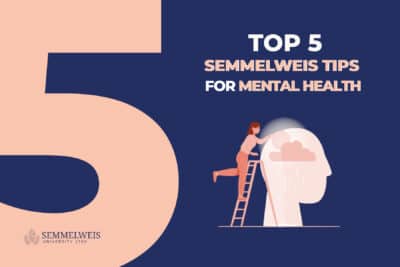 “One of the basic physiological effects of cold is the constriction of the blood vessels in the skin and limbs, as this allows our body to maintain the temperature of our vital organs. However, this natural protective reaction often raises blood pressure and puts more strain on the heart. Hypertensive patients are therefore advised to measure their blood pressure more frequently during the cold season, and those suffering from cardiovascular disease should consult their attending physician as it may be necessary to adjust their medication dose,” says Dr. Péter Varga. The lifestyle physician also draws attention to another negative effect of wintertime, namely the increase in the incidence of upper respiratory tract infections.
“One of the basic physiological effects of cold is the constriction of the blood vessels in the skin and limbs, as this allows our body to maintain the temperature of our vital organs. However, this natural protective reaction often raises blood pressure and puts more strain on the heart. Hypertensive patients are therefore advised to measure their blood pressure more frequently during the cold season, and those suffering from cardiovascular disease should consult their attending physician as it may be necessary to adjust their medication dose,” says Dr. Péter Varga. The lifestyle physician also draws attention to another negative effect of wintertime, namely the increase in the incidence of upper respiratory tract infections.
Cold air cools the mucous membrane of the nose, leading to physiological changes that favor the colonization of pathogens, which are already found in greater concentrations at this time of the year.
In heated rooms with low humidity, it is therefore important to ventilate briefly but intensively and to observe the precautions learned during the coronavirus pandemic: regular and thorough handwashing and the use of masks in crowded and enclosed spaces. The expert also emphasizes the importance of flu and pneumococcal vaccinations, especially for the elderly and chronically ill.
Dr. Péter Varga also notes that, according to research, vitamin D plays a key role not only in bone and calcium metabolism, but also in immune function:
Since our diet in Hungary is fundamentally deficient in vitamin D, it is advisable for everyone to take a minimum of 2,000 units of vitamin D daily, at least during the fall and winter months.
Restful sleep also plays a significant part in strengthening the immune system and preventing disease. As the days get shorter, our need for sleep increases, even if only minimally, so it is worth taking advantage of this, the lifestyle physician points out. He adds that the ideal bedroom temperature for deep, undisturbed sleep is around 17-19 °C.
Cold not only has a positive effect on sleep quality but also several other benefits in terms of health preservation. Low temperatures activate brown adipose tissue to increase heat production. This causes the body to use more energy, which can improve metabolism, reduce insulin sensitivity, and even have an anti-inflammatory effect. In addition, regularly exposing ourselves to cold for short periods of time is like exercising our blood vessels, which has long-term benefits for the cardiovascular system.
With due caution, the elderly can also benefit from the positive effects of low temperatures, even though their thermoregulation is less efficient.
Cold therapy can improve quality of life in certain chronic diseases: It can have an analgesic effect and relieve inflammation in patients suffering from certain musculoskeletal pains.
It is important that chronic patients consult their doctor before making any changes or introducing new habits, so that these can be tailored to their individual needs, Dr. Péter Varga emphasizes.
The cold winter months have not only physical but also psychological effects, the lifestyle physician explains. Seasonal affective disorder (SAD) is a well-known phenomenon that primarily manifests itself in depressive symptoms caused by little sunlight and long nights. Since it is difficult to get out and about at this time of year, it is good to know that a short walk in the cold can have a mood-boosting and invigorating effect.
Cold is a strong physiological stressor: It activates the sympathetic nervous system, increasing the release of norepinephrine and adrenaline, and the short-term effect of cold can also activate endorphin production. This increases alertness, motivation, and well-being.
Light therapy can also have a positive effect on our mood. For example, bright light in the morning regulates the circadian rhythm, increasing serotonin and dopamine activity, which improves our mood and helps prevent winter blues.
Éva Haiman
Translation: Dr. Balázs Csizmadia
Photo by Bálint Barta – Semmelweis University; cover photo: iStock


